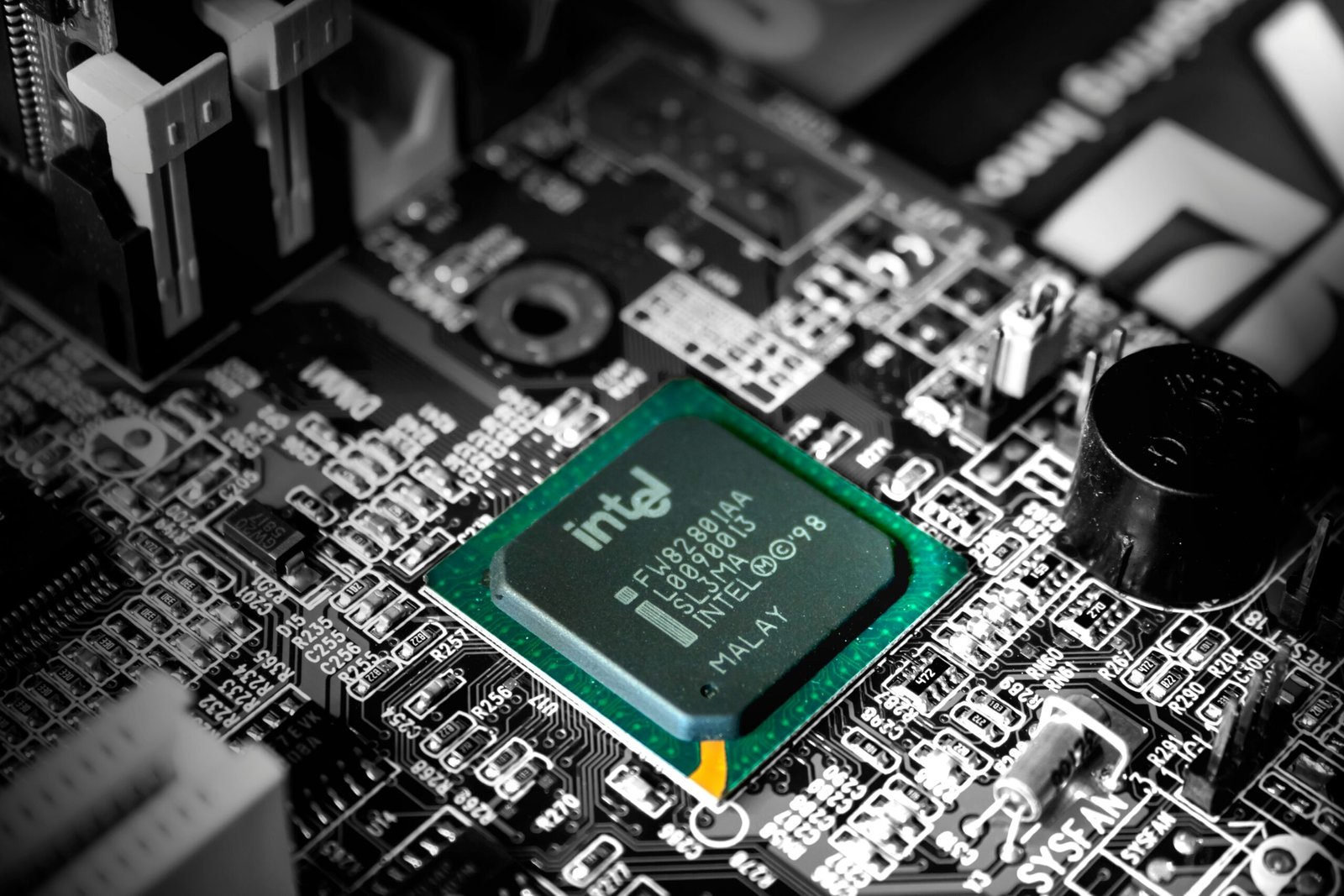Introduction to Smart Cities and Their Importance
The concept of smart cities has gained significant momentum in recent years, as urban areas around the world grapple with the complex challenges of modern living. A smart city leverages advanced technology, including artificial intelligence (AI) and robotics, to enhance the quality of life for its residents by optimizing urban services, improving infrastructure, and reducing environmental impact. As urbanization continues to rise, understanding the significance of smart cities becomes imperative for creating sustainable urban environments.
Urban areas face numerous challenges that directly affect the daily lives of their inhabitants. Congestion is a prevalent issue, leading to increased travel times and, subsequently, higher levels of stress and frustration among commuters. In addition, pollution from vehicles and industrial activity poses serious health risks, contributing to a decline in air quality and overall quality of life. Furthermore, many traditional urban services, such as waste management and public transport, often operate inefficiently, leading to resource wastage and diminished public satisfaction.
The adoption of smart city technologies can address these challenges effectively. By utilizing AI and robotics, cities can develop intelligent traffic management systems that alleviate congestion, enhance environmental monitoring, and streamline public services through automation and data analysis. The resulting improvements not only enhance urban living but also contribute to sustainability goals, making cities more resilient and adaptable to future demands.
In this article, readers can expect to learn about the evolving landscape of smart cities and the critical role that AI and robotics play in transforming urban ecosystems. We will explore various applications of these technologies, their benefits, and the potential for innovation in addressing contemporary urban issues. Ultimately, understanding smart cities is essential for stakeholders, policymakers, and citizens who seek to navigate and shape the future of urban living.
The Role of AI in Smart City Development
Artificial Intelligence (AI) has emerged as a critical component in the development of smart cities, significantly enhancing urban living through advanced technologies. As cities continue to grow, the integration of AI solutions in urban management has proven vital in addressing challenges such as traffic congestion, waste management, energy efficiency, and public safety.
For instance, AI-driven traffic control systems utilize real-time data analytics to manage traffic flow and reduce congestion. Cities like Los Angeles have implemented AI-based traffic signal systems that adapt to changing traffic patterns, resulting in a reported 15% decrease in congestion. These systems analyze vast amounts of data from various sources, including traffic cameras and sensors, enabling proactive management of urban mobility.
In the sphere of waste management, AI technologies such as smart bins equipped with sensors are revolutionizing collection methods. Cities like Barcelona have adopted such systems that monitor waste levels and schedule pickups only when bins are full. This approach improves operational efficiency, leading to significant cost savings and a reduction in carbon emissions from waste collection vehicles.
Moreover, AI applications in energy efficiency are becoming increasingly essential. Smart grids powered by AI can optimize energy distribution based on consumption patterns, reducing waste and lowering costs. For example, Singapore’s smart grid initiative leverages AI to predict energy demand, resulting in a 10% reduction in energy use across the city.
Finally, the enhancement of public safety through AI surveillance systems is a key benefit of smart city initiatives. Cities like Amsterdam have deployed AI algorithms in surveillance cameras to identify potential criminal behavior before it escalates. This preemptive approach has led to a notable decrease in crime rates, establishing AI as an indispensable tool in urban safety measures.
Overall, the implementation of AI in smart city development represents a transformative approach towards creating more sustainable, efficient, and safe urban environments. Such technologies not only improve daily living but also pave the way for innovation in urban planning and management.
Robotics: Revolutionizing Urban Services
The advent of robotics has initiated a significant transformation in urban living, with various applications enhancing the efficiency and effectiveness of urban services. One of the most remarkable advancements is the use of delivery drones. These unmanned aerial vehicles have begun to revolutionize the logistics sector by allowing for rapid parcel delivery, thus reducing traffic congestion and minimizing the carbon footprint associated with traditional delivery methods. Cities like San Francisco and Seattle are leading the way, experimenting with drone delivery systems that promise to streamline the logistics process while addressing residents’ increasing demand for convenience.
In addition to logistics, robotic waste collection is becoming an integral part of urban management. Robotic systems equipped with AI-driven technology can optimize waste pick-up routes, ensuring timely collection while reducing operational costs for municipalities. For instance, cities such as Amsterdam have incorporated automated waste collection units that operate efficiently and minimize environmental impact. These systems not only improve the cleanliness of urban landscapes but also reduce human labor costs and risks associated with waste management.
Moreover, autonomous public transport systems are being embraced as a solution to urban mobility challenges. Cities like Dubai have started deploying self-driving shuttles and buses, which offer a safe and reliable means of transportation. These vehicles operate within designated routes and are designed to alleviate congestion while ensuring that residents can conveniently travel across the city. Experts forecast that, as technology continues to advance, the integration of robotics in public transit will lead to more sustainable urban environments.
However, the implementation of such transformative technologies is not without challenges. Issues surrounding regulatory frameworks, public acceptance, and the initial investment costs remain prevalent. Despite these obstacles, the potential benefits of robotics in urban services, including improved efficiency, reduced costs, and enhanced quality of life for residents, position these technologies as key players in the future of our cities.
Conclusion and Future Outlook for Smart Cities
The evolution of smart cities, driven by advancements in artificial intelligence and robotics, holds significant promise for the future of urban living. As discussed in this article, the integration of these technologies transforms various aspects of city life, including transportation, energy management, public safety, and environmental sustainability. From AI-powered traffic systems that reduce congestion to robotics in waste management that enhances recycling efforts, the potential applications are both vast and diverse. The adoption of these innovative solutions not only addresses immediate urban challenges but also paves the way for more resilient and efficient cities.
To effectively engage with this transformative shift, individuals can take proactive steps in their respective communities. This may involve participating in local government discussions about smart technology implementations, advocating for policies that promote sustainable urban development, or supporting initiatives that harness AI and robotics for enhancing public services. By voicing opinions and providing feedback, citizens can play a crucial role in shaping how these technologies are integrated into daily life.
Furthermore, readers are encouraged to remain informed and share their insights or questions related to smart city initiatives. Engaging in dialogue with peers and local leaders can facilitate a deeper understanding of the impact of AI and robotics on urban environments. Experiences, whether personal or professional, related to smart technologies in cities can provide valuable perspectives that contribute to the ongoing conversation.
We invite you to delve deeper into the topic of smart cities and consider the implications for your own urban experience. If you found this article informative, please share it with others who may benefit from the knowledge. Together, we can advocate for a future where smart technologies genuinely enhance urban living for all citizens.




